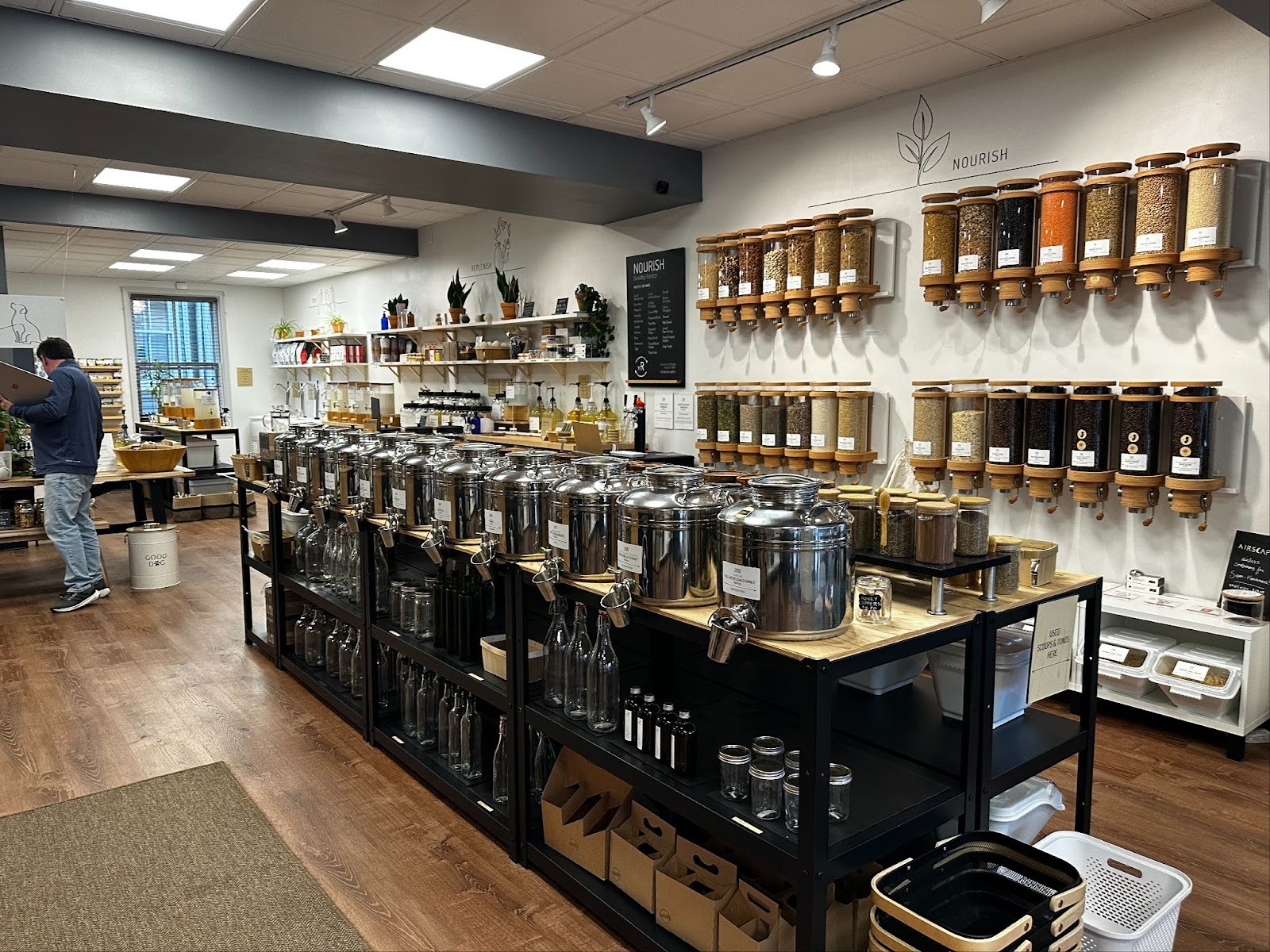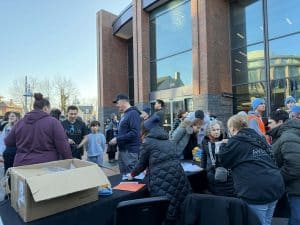We’ve all had the experience of seeing a plastic bag caught in a tree or a plastic bottle lying in the gutter. Sadly, this shouldn’t be surprising. Over 35 million tons of plastic is discarded every year in the U.S., but less than 6% gets recycled. Almost all of the plastic we use ends up in a landfill, burned in an incinerator, or worse, littered directly in our environment.
With Earth Day approaching, it’s important to spotlight our plastic pollution problem. But it’s also important to spotlight the communities taking the lead in reining it in. Upstream solutions like cities and towns passing bans on single-use plastics are critical steps in the effort to address our growing waste problem.
According to Faran Savitz, PennEnvironment Zero Waste Advocate, Pennsylvania passed an important milestone in February: 20% of the state is now covered by a local ban on plastic bags.
That’s incredible progress, especially considering that just five years ago the state legislature attempted to block our municipalities from banning plastic bags.
Since Pennsylvania’s first local plastic ordinance in 2018, there has been an surge in communities taking action. There are now over three dozen of these local laws across the state, with six of them in Bucks County. PennEnvironment estimates that these bag bans could eliminate over 950 million single-use plastic bags every year. That’s over 5,200 tons of plastic waste that won’t pollute our environment.
If we can cut out unnecessary single-use plastics, then we can help protect our environment, our communities, and our health. Nothing we use for just a few minutes should be allowed to pollute our planet for hundreds of years.
It’s time for all of Pennsylvania to finally address and put to rest its waste problem. The commonwealth produces more plastic than almost any other state in the country. It’s our responsibility to do our part and safeguard the environment. 2024 was a banner year for action on plastic pollution in Bucks. Three new ordinances were passed in Doylestown Township, Newtown Borough, and New Britain Borough. This year let’s build on their momentum and pass more local bans on single-use plastics in Bucks.
If you live in the Delaware Valley and want to know if your municipality has passed a ban on plastic bags, check out PennEnvironment’s map of local action. While Savitz offers a powerful statewide picture, Newtown Supervisor Elen Snyder shows us how this progress looks on the ground.
Snyder, a longtime environmentalist, was elected just before the COVID pandemic hit — throwing a wrench into early plans at the time to push for local plastic reduction. “We couldn’t ask businesses to change until COVID was over,” she explained. But nevertheless her team persisted. By April 2023, Newtown’s ordinance banning single-use plastic bags, polystyrene, and certain heavy-duty HDPE bags went into effect.
What’s striking about Newtown’s approach is the direct engagement with business owners. “We went to every business, spoke to every owner and manager,” Snyder shared. “All in all, we had very little resistance.” Local chains like Acme got on board quickly. But not everyone has complied.
READ: Moving Beyond the Plague of Plastics
Two businesses stand out for their ongoing non-compliance: McCaffrey’s and Oishi Japanese Restaurant, both of which continue to distribute banned bags. McCaffrey’s in particular, despite being a community favorite, has disappointed local shoppers by reverting to poly propylene black plastic bags after initial compliance. Snyder clarified that under the law, the township must fine the shopping center owners, not the individual businesses — though the costs of those fines can be passed down.
To date, non-compliant businesses receive two warnings, followed by fines starting at $200 and going up to $500. “We’ve already issued Oishi their first fine,” Snyder noted. Even a local dry cleaner managed to secure an exemption from the ban, illustrating the policy’s limitations and the need for more robust enforcement.
Snyder’s leadership reveals that effective bans aren’t just about laws on paper — they’re about accountability and transparency. “Some businesses asked for extensions to use up existing stock, and we’ve been fair and communicative,” she said. “But the public needs to step up, too.”
As a long-time resident and frequent customer of both McCaffrey’s and Oishi, I can say firsthand: it’s frustrating. We’ve supported these businesses for years — spent thousands of dollars in good faith. Now it’s time for them to respect the community’s will and the law. Write to them. Call them. Talk to them. Hold them accountable.
Let’s also hold ourselves accountable. Refuse the produce roll bags, do we really need a bag for bananas, if so BYO. Refuse plastic altogether. Even products that you think are safe like paper cups that you get your coffee to go in, have a plastic lining that is leaching into your drink and impacting your endocrine system. There are up to 16,000 chemicals of concern in these disposable packaging products. Newtown’s ordinance doesn’t cover everything, but our behavior can go beyond the law.
Snyder and her fellow supervisors are already eyeing next steps: transitioning municipal equipment to battery power and installing solar infrastructure at the township complex. No additional bans are planned for April’s one-year anniversary in Newtown, but the work of building a greener Newtown continues. Also as a side note, if you want to be truly inspired and moved by the refill revolution where no plastic is necessary, bring your own bags and clean containers to the Yardley Refillery where you can have a truly plastic free shopping experience.






